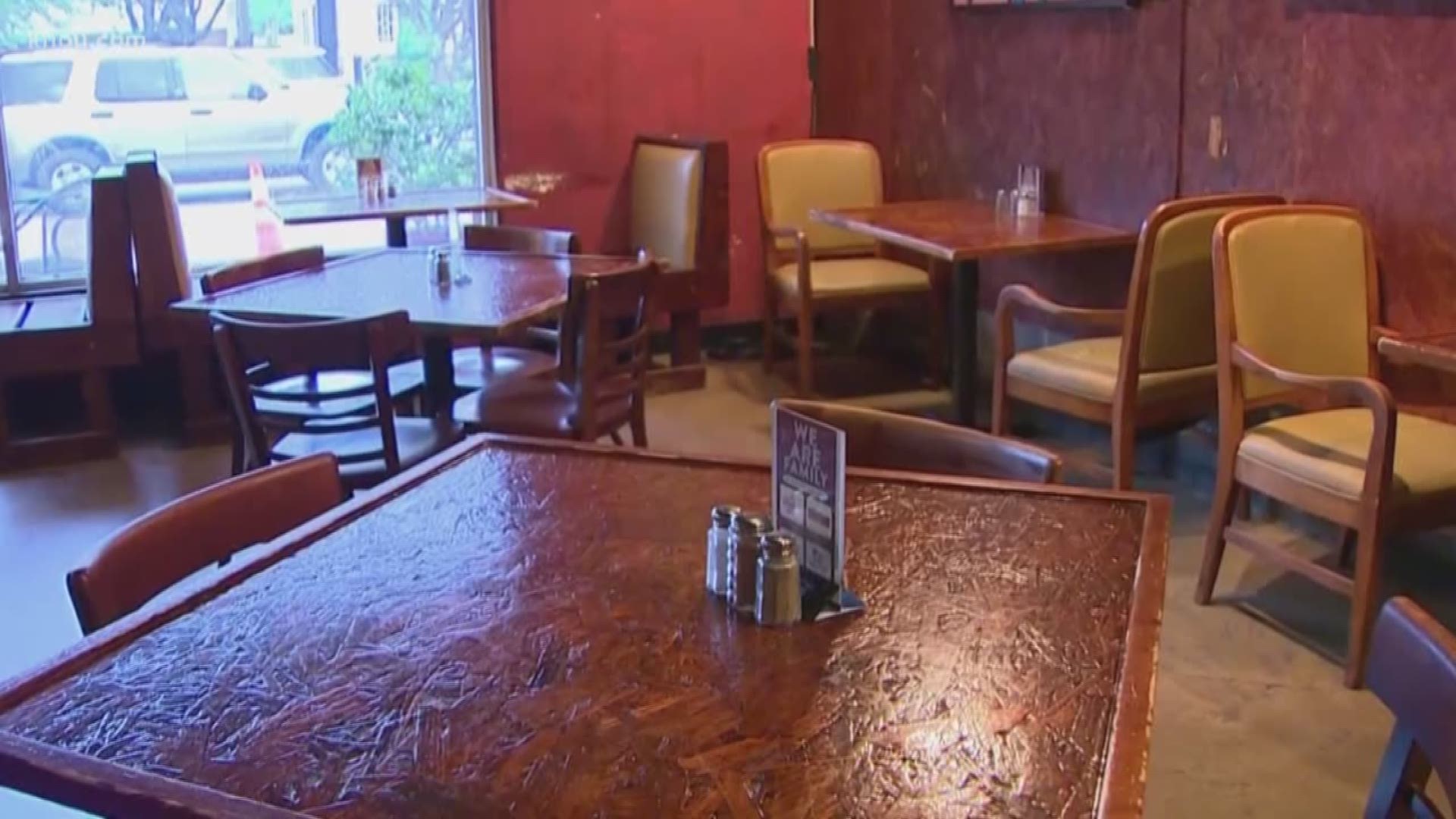HARRIS COUNTY, Texas — On Tuesday, bars closed in Harris County and restaurants switched to take-out, drive-through or delivery only. Those are just two of the big changes underway as officials try to slow to spread of COVID-19.
On Monday, Harris County Judge Lina Hidalgo, alongside Houston Mayor Sylvester Turner, announced the changes would take effect Tuesday morning and will be in place at least 15 days.
Since the county is under a public health emergency declaration, the county does have the authority to close down businesses, according to KHOU 11 legal analyst Gerald Treece.
“If the county deems that there is a health emergency, the county has the authority to close any establishment, including a bar,” Treece said. “You put the rules in neutral and general police power takes over. General police power: to protect the health, safety and welfare of the citizens of that jurisdiction.”
During this time, if a business refuses to comply, the county does have authority to fine an establishment and then take the owner to court to seek an injunction, which would shut a business down, according to Treece.
If there are widespread compliance issues, the National Guard could step in.
“They can prevent violence, they can enforce the law, including injunctions, including an order from the city or county,” Treece said.
This new set of rules can last as long as an emergency declaration is in place.
“It will last as long as the emergency health crisis exists, according to the experts who are advising the county and the city,” Treece said.
- Coronavirus updates: 5th positive COVID-19 case in Montgomery County
- How to file for unemployment in Texas if your job is affected by coronavirus
- List: Many Houston-area school districts extend closures amid coronavirus concerns
- Austin bagpipers celebrate St. Patrick's Day – from a distance
- Small businesses are going 'virtual' to keep their doors open
Coronavirus symptoms
The symptoms of coronavirus can be similar to the flu or a bad cold. Symptoms include a fever, cough and shortness of breath, according to the Centers for Disease Control.
Most healthy people will have mild symptoms. A study of more than 72,000 patients by the Centers for Disease Control in China showed 80 percent of the cases there were mild.
But infections can cause pneumonia, severe acute respiratory syndrome, kidney failure and even death, according to the World Health Organization. Older people with underlying health conditions are most at risk.
The CDC believes symptoms may appear anywhere from two to 14 days after being exposed.
Human coronaviruses are usually spread through...
- The air by coughing or sneezing
- Close personal contact, such as touching or shaking hands
- Touching an object or surface with the virus on it, then touching your mouth, nose or eyes before washing your hands.
Help stop the spread of coronavirus
- Stay home when you are sick.
- Eat and sleep separately from your family members
- Use different utensils and dishes
- Cover your cough or sneeze with your arm, not your hand.
- If you use a tissue, throw it in the trash.
Lower your risk
- Wash your hands often with soap and water for at least 20 seconds. If soap and water are not available, use an alcohol-based hand sanitizer.
- Avoid touching your eyes, nose, and mouth with unwashed hands.
- Avoid close contact with people who are sick.
- Clean and disinfect frequently touched objects and surfaces.
- If you are 60 or over and have an underlying health condition such as cardiovascular disease, diabetes or respiratory illnesses like asthma or COPD, the World Health Organization advises you to try to avoid crowds or places where you might interact with people who are sick.
Get complete coverage of the coronavirus by texting 'FACTS' to 713-526-1111.

